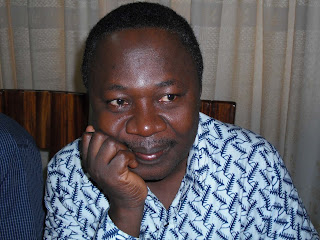WaterAid Ghana, Partners Hold Annual Review Workshop

EDMUND SMITH-ASANTE WaterAid Ghana (WAG), a non-governmental organisation with years of experience in Ghana’s water and sanitation sector, in collaboration with its partners, has held its Annual Review Workshop in the Brong Ahafo Regional capital of Sunyani. The two-day workshop attracted over 40 participants from some District Assemblies including the DCEs of Akuapem North and Krachi East districts, Community, Water and Sanitation Agency (CWSA), Environmental Health and Sanitation Directorate (EHSD) of the Ministry of Local Government and Rural Development (MLGRD) and Water Directorate of the Ministry of Water Resources, Works and Housing. Other participants were from WaterAid Ghana (WAG), NGO partners such as ProNet – North, ProNet – Accra, Akuapem Community Development Project (ACDEP), Afram Plains Development Organisation (APDO), New Energy and Civil Service Organisation (CSO) networks such as the Coalition of NGOs in Water and Sanitation (CO...
